Milan Cieslar: I am totally independent artist
Written by Eva Csölleová, Vítek FormánekMilan Cieslar is screenplay writer, producer and director who has around 30 titles under his belt.He chooses interesting and different topics and his biggest success was a war movie called „Der Lebensborg-Pramen života“.So far his last movie „ Život je život“was the mostly watched film of 2015.He established his own production company Happy Celluloid to keep his artistic and financial independence.We asked him for interview to which he obliged despite being busy with shooting a TV series.
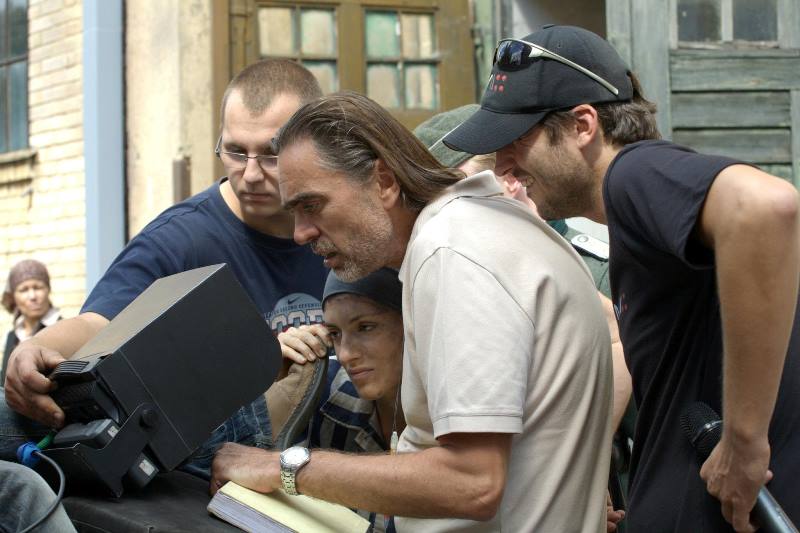 You were born in 1960 so decided where to go in your life during tough normalisation.What brought you to the idea of devoting you life to film?In those days it wasn´t so much of a skill but how good was your political profile which care free artist couldn´t like.So what hooked you there?
You were born in 1960 so decided where to go in your life during tough normalisation.What brought you to the idea of devoting you life to film?In those days it wasn´t so much of a skill but how good was your political profile which care free artist couldn´t like.So what hooked you there?
Maybe my film destination was helped by the fact I come from poor background and my mum wasn´t sure if she will be able to support me at a university.So I chose a Film industrial school which was the best given option.As a boy I loved the movie, so to go and study that was dream come true and it opened wide world for my eyes.
If we are correct, you attended Film industrial school in Čimelice between 1979-84.Who taught you in those days, who had the biggest influence at you and was real art taught at the film university in those days or there was lots of propaganda, more Soviet films, less classical ones such as Bergman, Fellini,Goddard or Hitchcock?
The answer at this question is very tricky and not easy.I got to the university when all good teachers left or emigrated and stayed those, lets say less author´s.But in the end I must say that Film univesrity in those days was still as transatlantic ship, which could go forward by inertia, even if engines stopped.Thanks to that I could graduate by Truman Capote story „ Mistr Bída“ and every Friday watched the best films from then current cinematography.I also attended lectures led by Otakar Vávra, Antonín 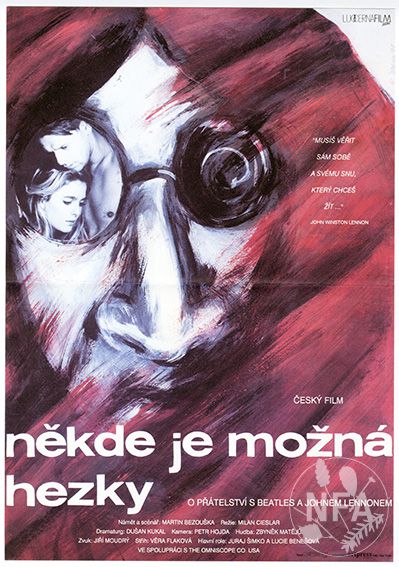 Kachlík,Václav Vorlíček and Jiří Sequens which were good but those led by Jaroslav Balík, Vojtěch Trapl and Ludvík Ráža were terrible.But the university had it´s noble level and genius loci.Eva Zaoralová was a guarantee of film history and choise of the films.More we weren´t allowed more we wanted to pass some boundaries of that time.On contrary to current boundaryless freedom of current university students I rated my school as free island at the Vltava river
Kachlík,Václav Vorlíček and Jiří Sequens which were good but those led by Jaroslav Balík, Vojtěch Trapl and Ludvík Ráža were terrible.But the university had it´s noble level and genius loci.Eva Zaoralová was a guarantee of film history and choise of the films.More we weren´t allowed more we wanted to pass some boundaries of that time.On contrary to current boundaryless freedom of current university students I rated my school as free island at the Vltava river
Your directors´debut came in 1989 with film „ Dynamit“ but soon after you were released from Barrandov studios along with many others by director Václav Marhoul. What was the atmosphere at that time in Barrandov studios and in Czech film industry?For director-beginner it had to be big disillusionment and dissapointment, wasn´t it?
I was booted by director Václav Markoul, who turned Barrandov into his private toy with silent agreement of Václav Havel.At that time anything was allowed and anything happened.Barrandow became our Hollywood since 30´s of last century.In 2000 I visited Universal studios and corridors smelled the same way as in Barrandow and they also looked very same.Both studios were shaped and influenced by emigrants from Austria and Germany.After all, communists kept the level of our Hollywood pretty high but without technology.I recall heavenly conditions of socialist film production, it was very sofisticated.And all of a sudden, BANG, END.Everybody went home and ten dark years followed before TV was stabilized and the production of independent films was started again.Those ten years we wouldn´t have survived without making adverts.
At the very year you made film „ Looking for Lennon“.Was it your personal statement about disillusionment of that time and memories at carefree years when you listened to The Beatles?Sorry we didn´t see that movie,was it a flop or success?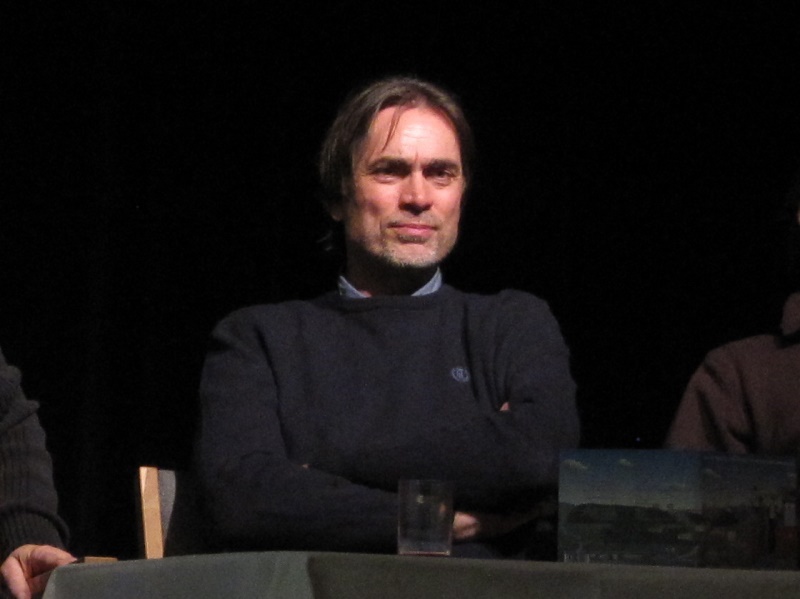
„Looking for Lennon“was made before Velver Revolution and screeplay was written before November 89 and showed the disillusionment of current time with perestrojka and all that was anticipated..Beatles were moral idols, music which free people.main hero was young boy, whose mother emigrated and he stayed here with grandmum.The world around him was hostile and he thought all betrayed ideals of the 60´s.Exteriors, dark clubs, booze, disillusionment in relationship with girl who wanted better life than her parents had.Film was developed in after -November days, we had eyes on legal rights to use song Imagine and other Beatles songs,Yoko Ono, supported Czech Republic but refused to give us right for free.We had to do film about Beatles without Beatles.Time is only judge.I saw it after 20 years and think that if I only edit some very talkative scenes, that film would get good reviews even today.But sadly it flooped in the flood of B films in 1991.
In 1993 you established your own production company Happy Celluloid.Did you want to become independent and have everything under control since you hated knocking at the door and begging for money?What did you need to be able to kickstart the company?
You got it.At that time I worked in advert business, it was busy time.It was kind of post socialism with aspects of capitalism, every company wanted to have it´s artistic advert.All at once wanted to make business so I got hooked, too.I became a businessman in advert department with view of making film in the future for my own money. We were young and naive.
In 2000 you made your so far best and the most successful film „ Pramen života“.What led you to choosing this topic and how much are you interested in history?How long did you prepare the screenplay for that?
In 1996 I bumped by accident into Vladimír Körner who I knew from a pub „ U Rarášků“ which was asylum for film makers at that time.He offered me to read the screenplay of Lebensborn which was refused by Czech TV.Movie was to be filmed by Karel Kachyňa who I highly respected.I liked the screenplay and I voiced some ideas, how to make it deeper and upgrade it.Surprisingly Vladimír said yes and we started to cooperate when we wrote version after version into 1998 when we finally made the film.When I was filming that I felt I make exceptional film.
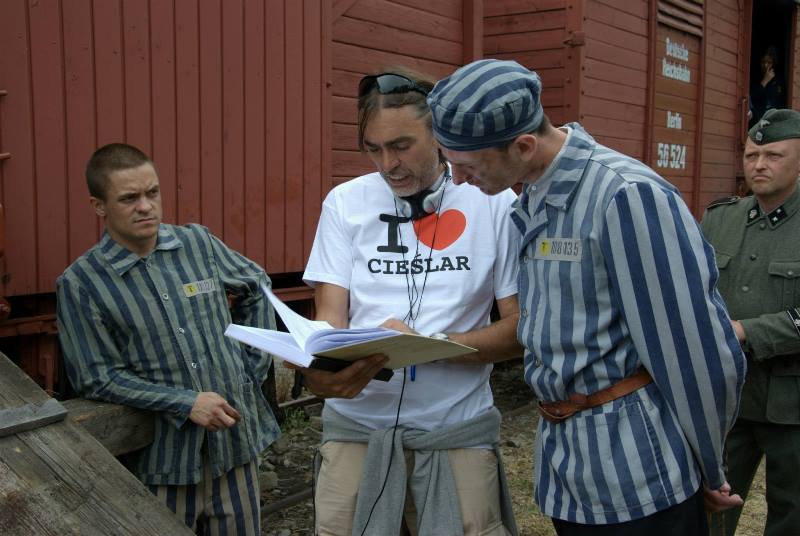
You make comedies, fairy tales, war dramas.Are you deliberatelly avoiding being boxed and labeled or you lust for artistically various projects to step up your professional level?Which genre is the closest to your heart?
Definitelly.I am not one genre director who makes similiar stories year after year.Aforementioned Karel Kachyňa wasn´t like that either.Despite that I think my films have something in common.I must admit that to make comedy is the hardest thing,you know to make people laugh and don´t be shamed of it, that is art.The closest to my heart is drama or any kind of film whose story makes you forget that you are sitting in the movie.
Did you try and pay tribute by some of your films, you know show your admiration to person or event?Was film „ Colette“ only interesting project or war topic doesn´t let you go to sleep easily?
Colette was my reaction to what I found in archives while making research for „ Pramen života“ and „ Krev zmizelého“.I had a feeling that holocaust and mainly concentration camp as a scene of something dark in human soul is good inspiration for very strong film of present time.That is why I made him after 6 years preparation and it cost 100 million cronas.The biggest satisfaction were sales to whole world and hug from Branko Lustig ( producer of Schindler´s list) who also survived Auswitz.
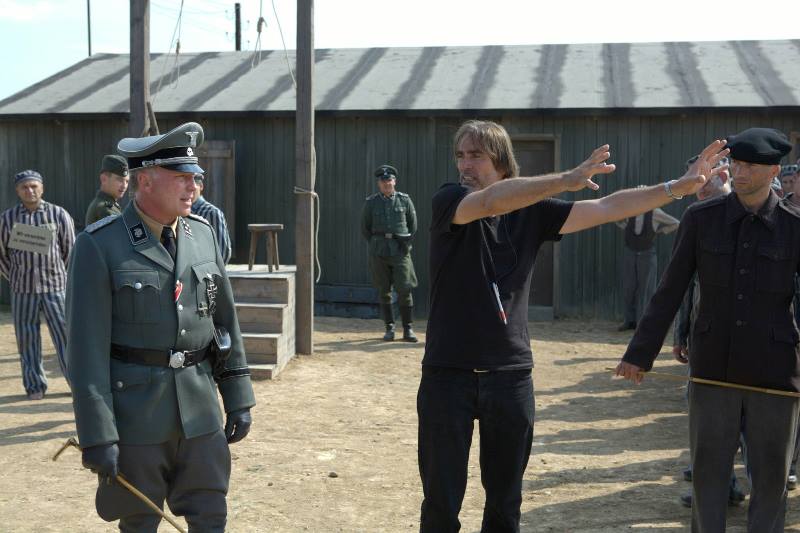 In 2012 you made a comedy „ Láska je láska“ with Ondřej Vetchý and Simona Stašová.In 2015 it´s free sequel „ Život je život“ had premiere.Did you feel that both main stars didn´t show everything they have and there was space for new situaction and plots.Was it reason why you came back to it after 3 years?
In 2012 you made a comedy „ Láska je láska“ with Ondřej Vetchý and Simona Stašová.In 2015 it´s free sequel „ Život je život“ had premiere.Did you feel that both main stars didn´t show everything they have and there was space for new situaction and plots.Was it reason why you came back to it after 3 years?
Both are exceptional actors who have enough abilities to make together further five or ten films.Both films have same screenplay writer –Martin Horský- and will to entertain intelligent audience.Unlike „ Láska je láska“ Život je život“ was the most visited film of 2015.
Ondřej Vetchý is just outstanding.We couldn´t overlook similarity with Belmondo in „ „Muž z Acapulca“.Did you come out from this topic and would you film with different actor had Ondřej Vetchý refused?
It is hard to answer that at the moment.Ondrej impersonited that movie, without him it wouldn´t work.Hard to say how it would pan out if he couldn´t star there and someone else would have taken his place.I am pleased he joined me in.And in the movie that is also an enchantment from the movies of my childhood, it stays with you forever.
How much are you financially and artistically independent.Does Happy Celluloid produce all your films or also participate in other projects?
Yes, in movie business I am financially and personally totally independent.
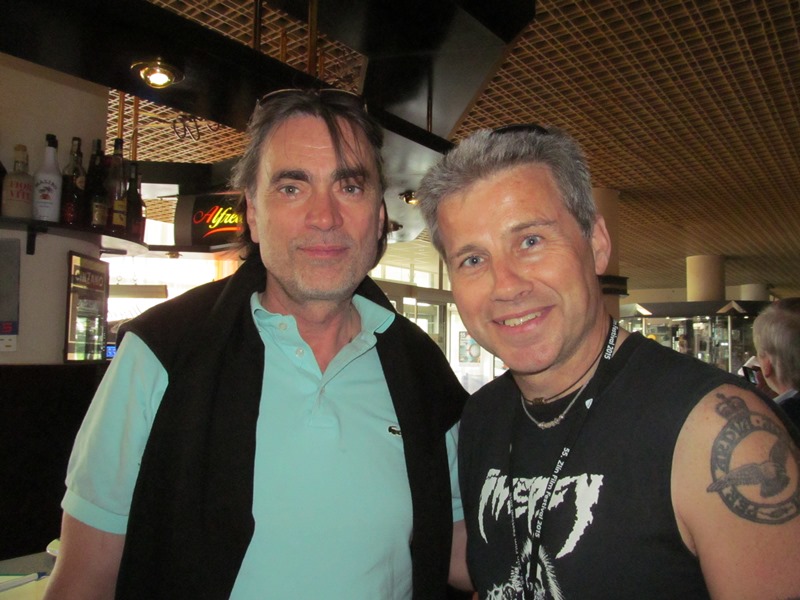 What is your relationship to independent film and how do you view it´s position in Czech Republic?
What is your relationship to independent film and how do you view it´s position in Czech Republic?
Independent film is kind of euphemism since even that most independent film needs it´s viewer.If it´s a product of few friends it it more kind of amateurish.After all that amateurism creeps into film under various art covers as artistic token.If it doesn´t hit us emotionally and intellectually, it´s not worth a big screen and viewers interest.If the film is aimed for wide distribution, it can be independent only as far as it ignores the main stream and story scheme.
Visuality and ability to tell story by picture is gift of real artist.It works from silent film to Buňuel,Goddard,Visconti, Forman and all other great men behind camera.In Czech there should be shooted less films with more quality screenplay.


